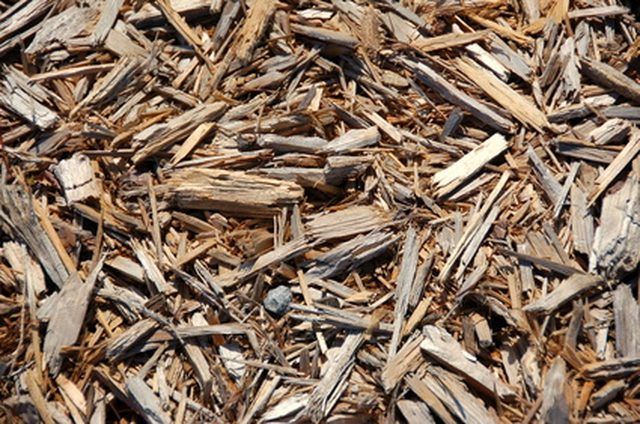Bulbs
Flower Basics
Flower Beds & Specialty Gardens
Flower Garden
Garden Furniture
Garden Gnomes
Garden Seeds
Garden Sheds
Garden Statues
Garden Tools & Supplies
Gardening Basics
Green & Organic
Groundcovers & Vines
Growing Annuals
Growing Basil
Growing Beans
Growing Berries
Growing Blueberries
Growing Cactus
Growing Corn
Growing Cotton
Growing Edibles
Growing Flowers
Growing Garlic
Growing Grapes
Growing Grass
Growing Herbs
Growing Jasmine
Growing Mint
Growing Mushrooms
Orchids
Growing Peanuts
Growing Perennials
Growing Plants
Growing Rosemary
Growing Roses
Growing Strawberries
Growing Sunflowers
Growing Thyme
Growing Tomatoes
Growing Tulips
Growing Vegetables
Herb Basics
Herb Garden
Indoor Growing
Landscaping Basics
Landscaping Patios
Landscaping Plants
Landscaping Shrubs
Landscaping Trees
Landscaping Walks & Pathways
Lawn Basics
Lawn Maintenance
Lawn Mowers
Lawn Ornaments
Lawn Planting
Lawn Tools
Outdoor Growing
Overall Landscape Planning
Pests, Weeds & Problems
Plant Basics
Rock Garden
Rose Garden
Shrubs
Soil
Specialty Gardens
Trees
Vegetable Garden
Yard Maintenance
Cedar Mulch in a Vegetable Garden
Cedar Mulch in a Vegetable Garden. Cedar mulch is functional mulch in any garden, and there are many reasons for using cedar mulch in a vegetable garden. The benefits of cedar mulch will aid in plant health and development and soil health, according to Paula Deimling of Kentucky Living Magazine. Cedar mulch is typically available in shredded form...

Cedar mulch is functional mulch in any garden, and there are many reasons for using cedar mulch in a vegetable garden. The benefits of cedar mulch will aid in plant health and development and soil health, according to Paula Deimling of Kentucky Living Magazine. Cedar mulch is typically available in shredded form and is usually derived from Western or Eastern Red Cedar trees.
Slow Decomposition
Cedar mulch "does not decompose as fast as hardwood mulches and will last two to three years," reports Deimling. This slow decomposition allows for reduced mulch usage. This causes environmentally friendly reduced wood harvests. The slow decomposition also increases the time benefits of cedar mulch are experienced in a garden.
Insect Resistant
Cedar wood is resistant to many insects. This is the reason many closets and dressers are lined with aromatic cedar woods. Cedar mulch prevents many insects from invading gardens and homes lined with mulched garden and flower beds. According to Heike E. Messner and Jules Silverman of North Carolina State University, two species of the common ant--the Argentine ant and the odorous house ant--avoid using cedar mulch as a nesting substrate, and that cedar mulch, "may serve as an effective component of a comprehensive urban ant management program."
Retains Moisture and Protects Soil
Mulch retains moisture in the ground year-round, states Deimling. This retained moisture will protect roots and soil temperatures through maintaining a more level year-round soil temperature that avoids the spikes of summer and winter temperatures. As mulches slowly decompose they return nutrients to the soil. This further protects soil with maintained nutrient levels necessary for good soil health.
Prevents Weeds
A 2- to 3-inch layer of mulch will suppress weeds, says Adrian Higgins of the Washington Post. Mixing a small amount of mulch with topsoil before applying mulch as surface protection will increase weed suppression and promote nutrient delivery directly to soil aggregates. Weeds may appear in mulch but likely will lack strong root systems. Most weeds are easily removed from mulched gardens immediately following watering.
Multiple Sources
Cedar mulch is obtained from Western and Eastern red cedar forests. Western forests are typically located in Idaho and Montana. Eastern forests grow in Missouri and Arkansas. Multiple locations of cedar forests, unlike Louisiana cypress forests, avoid shortages and adverse environmental impacts. According to Higgins, Louisiana activists have begun protesting the involvement of the mulch industry in clear-cutting coastal Louisiana bald cypress. Cedar mulch is more widely available than Louisiana bald cypress, and demand for cedar mulch is not threatening a loss of ecosystem like the harvest of the bald cypress in Louisiana.